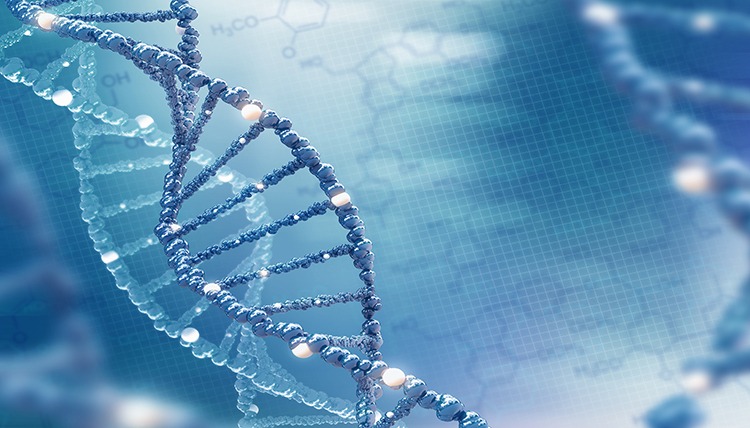CDMO/CMO Expansion Update: Biomanufacturing
Driven by increased biologic-based drug development and industry capacity needs, biomanufacturing is an active area of investment for CDMOs/CMOs with several large-scale expansions recently announced or underway. What CDMOs/CMOs are expanding? DCAT Value Chain Insights rounds up the latest.
Biomanufacturing investments
Highlights of some key recent biomanufacturing (drug substance) investments by CDMOs/CMOs are highlighted below.
Fujifilm Diosynth Biotechnologies. Last month (March 2021), Fujifilm Diosynth Biotechnologies selected Holly Springs, North Carolina as the location for its new JPY 200 billion ($1.9-billion) large-scale cell-culture biomanufacturing site. The company previously announced the new facility in the US in January 2021 but had not selected the site location. The new facility will provide large-scale cell-culture manufacturing for bulk drug-substance production with 8 x 20,000-L bioreactors with the potential to expand and add a further 24 x 20,000-L bioreactors. In addition, the facility will also provide commercial-scale, automated fill-finish and assembly, packaging, and labelling services. The facility is expected to be operational by the spring of 2025.
In addition, in June (June 2020), the company announced that it is investing approximately 100 billion Yen ($928 million) at its site in Hillerød, Denmark, near Copenhagen, to double drug-substance manufacturing capacity, expand its capabilities to include fill–finish, and enhance its current assembly, labeling and packaging services. Fujifilm Diosynth acquired the facility from Biogen in 2019 for approximately $890 million.
The investment will expand production lines for bulk drug substances with the addition of six mammalian-cell bioreactors, which would bring the total to 12 x 20,000-liter bioreactors by the fall of 2023. The expansion will also include the addition of the Denmark site’s first fill–finish production line (to be added by the summer of 2023) capable of producing 35 million units per annum for large-scale production. In the spring of 2022, a new packaging line, equipped with facilities to assemble multiple types of auto-injectors as well as automatic labeling, will be added.
Earlier this month (April 2021), Fujifilm Diosynth Biotechnologies broke ground for a microbial facility expansion at its site in Teesside, UK. The company is investing JPY 9 billion ($82 million) in the expansion. The facility expansion will be operational in early 2022.
Additional investments announced or started by Fujifilm Diosynth in 2020 include: (1) starting construction of a new $55-million, 60,000-square-foot Advanced Therapies Innovation Center in College Station, Texas, expected to be operational by the fall 2021; (2) a $35-million expansion at its College Station, Texas site to add cell culture and high throughput manufacturing suites to support the production of gene-therapy products, with the expansion slated to be completed in 2020; (3) the start of construction in February (February 2020) of a new 31,778-square-foot addition at its site in North Carolina to increase its cell-culture manufacturing capacity at the site by approximately 25% and microbial capacity by approximately 50%, with the expansion slated to be completed by mid-2021; and (4) a doubling of its existing process characterization capacity, announced in December (December 2020), at its site in the UK, which is expected to be completed by the late fall in 2021.
Samsung Biologics. In August (August 2020), Samsung Biologics announced an investment of KWR 2-trillion ($1.7-billion) for a new biomanufacturing plant, the company’s fourth, in Incheon, South Korea and for a second bio complex. The company broke ground on the new facility in November (November 2020), which, upon completion, will provide 256,000 liters in total biomanufacturing capacity. The plant will have a modular design that will allow flexibility for certain parts of the plant to begin manufacturing activities by the end of 2022, with the goal to commence full operations in 2023. The company also began negotiations in 2020 with the authorities of the Incheon Free Economic Zone to purchase additional land for a second bio complex to house a global R&D facility and allow for future biomanufacturing plants.
Catalent. Earlier this month (April 2021), Catalent reported that it had completed two new suites at its biologics drug-substance development and manufacturing facility in Madison, Wisconsin. The expansion increased the number of manufacturing suites at the site to five, more than doubling its overall cGMP-scale capacity. Each new suite includes a 2×2,000-liter single-use bioreactor system capable of processing batches of 2,000 liters or 4,000 liters for cGMP clinical and commercial manufacturing. The first engineering batch in the new suite began in March 2021, with the first cGMP batch expected to be manufactured during May (May 2021). The second new suite is being prepared to begin its first engineering batch in May, ahead of its first cGMP batch in mid-July. The addition of the two new manufacturing suites adds to an existing 2 × 2,000-liter suite, a 1,000-liter suite, and a 500-liter suite. Catalent Biologics’ drug-substance manufacturing network also includes a facility in Bloomington, Indiana, which houses two 2,500-liter stainless-steel bioreactors and a 1,000-liter single-use bioreactor for cGMP production, as well as drug-product fill/finish and packaging capabilities.
Also in 2021, Catalent agreed to acquire Delphi Genetics, a Gosselies, Belgium-based plasmid DNA (pDNA) cell and gene therapy CDMO. Catalent also announced the launch of pDNA development and manufacturing services at its Rockville, Maryland facility. Founded in 2001 as a spin-off from the Université libre de Bruxelles, a Brussels-based research university, Delphi Genetics handles the entire pDNA development and cGMP manufacturing process. Its operations are headquartered at a 17,000-square-foot facility, adjacent to Catalent’s current cell-therapy facilities.The acquisition fast-tracks Catalent’s US expansion of plasmid capabilities at its Rockville facility. Since acquiring the site in 2019, Catalent has invested to upgrade the facility with the addition of dedicated single-use microbial capacity for plasmid DNA production. Process and analytical development for plasmid DNA are also available on site, and the facility will also offer research- and cGMP-grade plasmids to support its viral vector manufacturing from initial development through to commercialization.
Catalent made several investments in 2020 to expand its capabilities in cell and gene therapies. Chief among them was the completion of its $315-million acquisition of MaSTherCell Global, a CDMO of cell and gene therapies, based in Gosselies, Belgium and Houston, Texas. In addition, in September (September 2020), Catalent announced that it was investing $130 million to add five additional Phase III through commercial-scale manufacturing suites to its gene-therapy campus in Harmans, Maryland. The campus is one of Catalent’s five gene-therapy locations in Maryland. The facilities were gained as part of Catalent’s $1.2-billion acquisition in 2019 of Paragon Bioservices, a contract provider of viral vector development and manufacturing services for gene therapies.
Thermo Fisher Scientific. In 2020, (September 2020), Thermo Fisher Scientific opened a new Bioprocessing Collaboration Center in St. Louis, Missouri, where multiple Thermo Fisher businesses will jointly develop bioprocessing products, workflows, and services. The center is adjacent to the company’s biologics manufacturing facility, which had earlier doubled production capacity with a $50-million expansion. In addition, the company announced in 2020 (March 2020) plans to open a new cell-therapy development and manufacturing collaboration center in Princeton, New Jersey to combine pharma services and biosciences expertise from across the broader Thermo Fisher network. A new cell-therapy facility is coming on line at the same location. Following its $1.7-billion acquisition of Brammer Bio, a cell- and gene-therapy CDMO in 2019, Thermo Fisher also expanded its viral vector development and manufacturing capabilities by opening a new site in Lexington, Massachusetts and expanding sites in Cambridge, Massachusetts and Alachua, Florida.
Earlier this year (2021), Thermo Fisher completed the acquisition of Henogen S.A., Novasep’s viral vector manufacturing business in Belgium, for approximately EUR 725 million ($875 million). Novasep’s viral vector manufacturing business provides contract manufacturing services for vaccines and therapies with more than 7,000 square meters of clinical and commercial manufacturing capacity. The business has two locations in Seneffe and Gosselies, Belgium and has approximately 400 employees. It had estimated 2020 revenue of EUR 80 million ($96 million).
In addition, Thermo Fisher Scientific announced plans in December (December 2020) to construct a new cGMP plasmid DNA manufacturing facility in Carlsbad, California. The site will expand the company’s clinical and commercial capabilities for plasmid DNA, which is used as a raw material to develop and manufacture cell and gene-based therapies. The site will also have the capability to produce large-scale plasmid DNA as a primary drug substance for DNA therapies. The 67,000-square-foot facility is expected to be completed in the first half of 2021.
The expansion builds on the company’s continued investment in cell and gene therapy facilities, including: (1) viral vector facilities in Cambridge, Lexington and Plainville, Massachusetts, and Alachua, Florida; (2) a new cell-therapy manufacturing facility in Princeton, New Jersey; and, (3) a new dedicated cryocenter in Weil am Rhein, Germany to provide specialized cryogenic and cold-chain supply chain services to support clinical trials across Europe and globally. The new commercial manufacturing site in Plainville, Massachusetts, a $180-million project, will more than double the company’s commercial viral vector capacity to support demand for the development and manufacture of gene therapies and vaccines. Construction of the new 290,000-square-foot facility is expected to be completed in 2022.
Lonza. In August (August 2020), Lonza announced an expansion to the company’s microbial manufacturing facility in Visp, Switzerland to provide mid-scale commercial manufacturing to multiple customers. The new facility will be the sixth to be housed in Lonza’s new biopark in Visp, Switzerland and complements existing small-scale (1,000 L) and large-scale (15,000 L) assets in Visp. The facility is expected to be operational in the second half of 2022.
Lonza is also proceeding with a new biomanufacturing facility in China. The new 17,000-square-meter mammalian biologics development and manufacturing facility in Sino-Singapore Guangzhou Knowledge City, an industrial park in Guangzhou, China, is the product of a three-way agreement between Lonza, GE Healthcare (now Cytiva following the completion of the $21.4-billion acquisition by Danaher of GE Healthcare Life Sciences in 2020), and the Guangzhou Development District (GDD), which was signed in 2018, and under which Cytiva and the GDD built and Lonza bought and will operate the facility. As reported in April 2020, Lonza expects to begin laboratory and manufacturing operations for new CDMO projects in 2021.
AGC Biologics. In November (November 2020), AGC Biologics announced it will invest approximately EUR 160 million ($194 million) to expand the production capacity of its Copenhagen, Denmark facility to more than double AGC Biologics’ single-use bioreactor mammalian cell-culture capacity at the site. The expansion is slated to begin operations is 2023.
Also in 2020, AGC Biologics reported that it had purchased a commercial manufacturing facility, formerly owned by AstraZeneca, in Boulder, Colorado to provide it with additional and larger-scale biopharmaceutical production capacity. The facility was scheduled to begin full-scale operations and manufacturing by April 2021. AGC Biologics also progressed further facility expansion projects in 2020 and early 2021 at its facilities in Seattle; Copenhagen; and Chiba, Japan. In addition, AGC Biologics reported in July (July 2020) an investment of EUR 1 million ($1.1 million) to expand its pDNA Center of Excellence in Heidelberg, Germany for process development and manufacturing of plasmid DNA. Also, the company announced earlier this year (2021) plans to expand its Cell and Gene Therapy Center of Excellence in Milan, Italy to increase capacities and implement viral- vector-suspension capabilities. With the expansion, AGC Biologics will add two additional floors to the suite and install additional equipment on the current floor. The expansions are scheduled to begin full operation in 2022.
WuXi Biologics. WuXi Biologics is increasing its position in China with two separate deals, announced last month (March 2021): an agreement to acquire Pfizer’s biologics drug-substance and drug-product manufacturing facilities in Hangzhou, China, and a separate agreement to acquire a more than 90% interest in CMAB Biopharma, a biologics CDMO headquartered in Suzhou, China.
Pfizer’s 50,000-m2 facilities, operational since 2018, include drug-substance capacities equipped with 2 x 2,000-L single-use bioreactors expandable to 4 x 2,000-L and drug-product capacities for vial filling and pre-filled syringes. The agreement includes the associated workforce of the facilities. The transaction is expected to close in the first half of 2021. Production at the facilities is expected to commence shortly after the deal closure.
Separately, WuXi Biologics entered into a purchase agreement with CBC Group, a healthcare-dedicated investment firm, under which WuXi Bio will acquire more than a 90% interest in CMAB Biopharma. CMAB, which has more than 250 employees, provides cell-line development, process development, and GMP clinical manufacturing services. The deal will allow WuXi Biologics to increase 7,000-L drug-substance capacity and drug-product capacity for liquid and lyophilized products.
Also in December (December 2020), WuXi Biologics agreed to acquire from Bayer a biologics drug-substance manufacturing facility in Wuppertal, Germany for EUR 150 million ($183 million). Under the agreement, the two companies will enter into a long-term sublease agreement and a transitional service contract. Bayer had originally planned to use the facility to produce recombinant factor VIII products. WuXi Biologics intends to use the facility for commercial-scale production to manufacture drug substances for COVID-19 vaccines and other biologics and is planning additional investments in process equipment at the site. The 30,000-square-meter facility includes 3 x 1,000-L perfusion and 6 x 2,000-L fed-batch production capacity with independent downstream suites and is expected to be GMP-ready in late 2021. The transaction, which is subject to regulatory approval, is expected to close in the first half of 2021.
Arranta Bio. Arranta Bio, a CDMO focused on live biotherapeutic products and the human microbiome, announced plans in 2020 to add a new 130,000-square-foot facility in Boxborough, Massachusetts to complement its existing facilities in Watertown, Massachusetts and Gainesville, Florida. The Boxborough site will be developed in phases, and work on the first two phases has begun. Total investment in Boxborough is expected to exceed $150 million. With the first phases of construction underway, start-up of GMP suites is expected early in 2022.
The Boxborough facility will bring the total manufacturing capacity at Arranta to over 230,000 square feet. Arranta invested more than $100 million in 2020 to expand its process development and early clinical GMP supply capacity at its site in Gainesville, Florida and to establish a multi-product, commercial-ready manufacturing facility in Watertown, Massachusetts. The Watertown facility was completed at the end of 2020 and is now being commissioned to supply live biotherapeutic products to microbiome innovator companies.
Avid Bioservices. Earlier this year (2021), Avid Bioservices initiated Phase II of the company’s two-phase plan to expand its overall manufacturing capacity at its Myford facility in Tustin, California. The expansion includes a second manufacturing train with upstream and downstream processing suites, known as Myford South. Based on conceptual plans, the company expects the Myford South build-out to take 18 to 24 months to complete at a cost of approximately $45 million to $55 million.
The ongoing Phase I of the project, which expands the production capacity of the company’s existing manufacturing train within the northern side of the Myford facility (Myford North) by adding a second downstream processing suite, was initiated in the fourth quarter of 2020. The company estimates the first phase will take approximately 12 to 15 months to complete at an estimated cost of approximately $15 million.
Abzena. Earlier this year (2021), Abzena announced plans to add a biomanufacturing site in the US, the company’s sixth globally. The new facility will accommodate Phase III and commercial manufacturing. A phased approach to construction will initially allow four modular suites with each suite having up to two 2,000-L bioreactors, followed by the addition of two further 2,000-L suites. Additionally, the site will be equipped to handle existing and new advances in manufacturing such as continuous manufacturing and perfusion with manufacturing commencing in mid-2022.






